DUP adviser 'said fill our boots' over RHI, inquiry hears
- Published
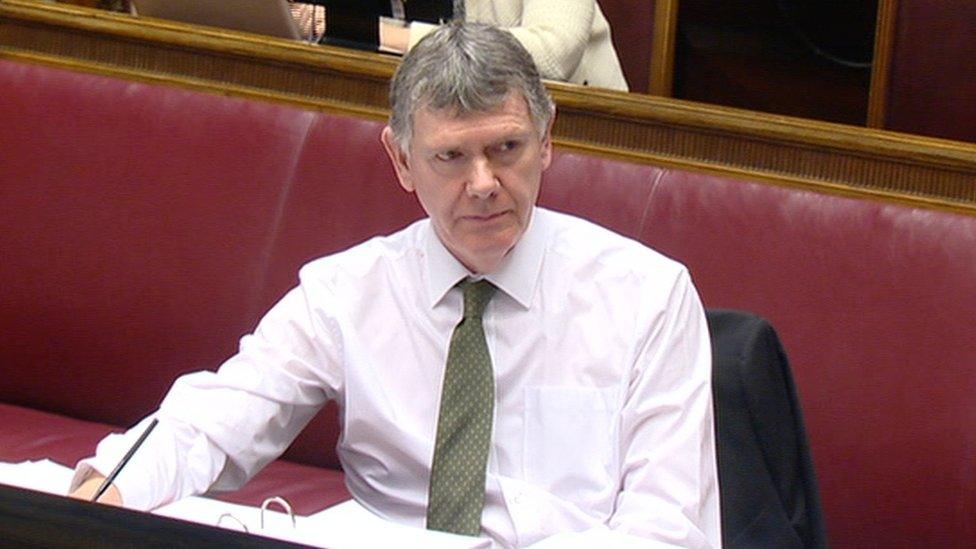
Andrew McCormick was appearing on the final day of oral evidence at the RHI public inquiry
A former DUP adviser allegedly said "we could fill our boots" with money from NI's flawed green energy scheme because he believed it was coming from the Treasury, an inquiry has heard.
The claim was made by senior civil servant Andrew McCormick.
He was appearing on the final day of evidence at the RHI inquiry.
The scheme was set up in 2012 to boost uptake of eco-friendly heat systems, but huge subsidies led to a £490m bill for Northern Ireland taxpayers.
Friday marks day 111 of oral evidence heard by the panel, which is being chaired by Sir Patrick Coghlin.
The Renewable Heat Incentive (RHI) inquiry was set up in January 2017 and began its hearings last November.
'Relaxed and smiling'
On Friday, Mr McCormick made his claim about Andrew Crawford, who was DUP leader Arlene Foster's special adviser when she was in charge of the RHI scheme as enterprise minister.
Mr McCormick, who is a former permanent secretary in the enterprise department, said Mr Crawford had made the comment to him at a dinner in October 2016.
He described it as a direct conversation with Mr Crawford, who was "very relaxed and smiling".
Mr McCormick said that led him to believe Mr Crawford had misunderstood how the scheme was funded, but he said evidence uncovered by the inquiry pointed to the view that Mr Crawford was aware of the potential for the abuse of the scheme and the financial impact it could have.
Even after it had emerged in 2015 that there were problems with the scheme's budget, some officials were of the belief that any overspend would be paid for by the Treasury.
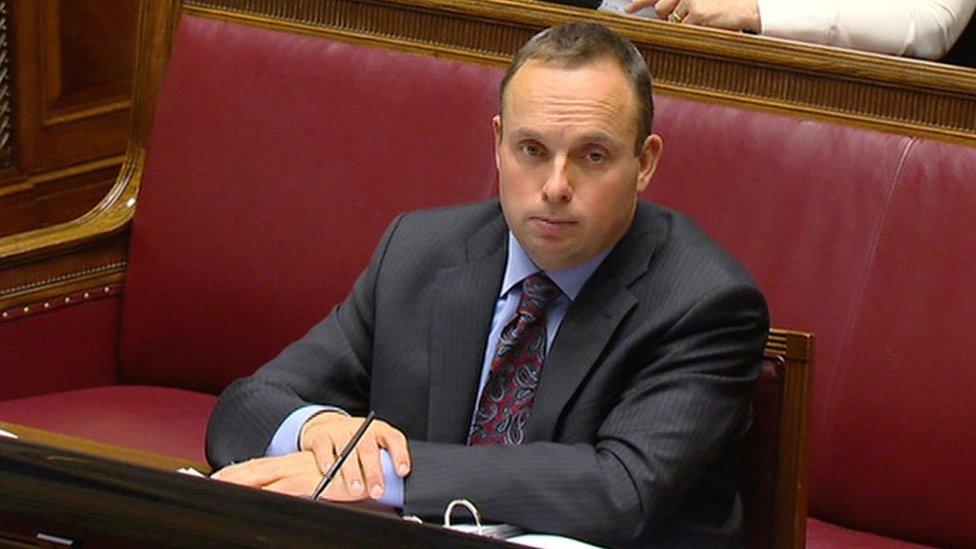
Ex-DUP special adviser Andrew Crawford faced days of questioning at the RHI inquiry
Ultimately, that was wrong and the overspend was left for Stormont to deal with.
The inquiry has already heard claims that Mr Crawford was involved in a decision to delay cost controls to the scheme in summer 2015, claims he has repeatedly denied.
The four-week delay to introduce cost controls allowed a spike in about 800 applications to the scheme before the lucrative subsidy levels fell, which did the most damage to the public purse.
'Reality at Stormont'
In January 2017, Mr McCormick named Andrew Crawford as the adviser who exerted influence to keep the scheme open - the DUP adviser resigned as a DUP ministerial adviser shortly after that but denied the claim.
On Friday, Mr McCormick said he was told by another DUP adviser, Timothy Cairns, that "others in the party" didn't want cost controls and the "inference" was that it was Mr Crawford.
He also told the inquiry that before devolution collapsed in January 2017, it had become "a reality at Stormont" that special advisers in the Office of the First and Deputy First Ministers (OFMDFM) were in charge.
Much of the inquiry's work has focused on the relationship between ministers and unelected special advisers, and how much power they wielded in terms of taking policy decisions.
Speaking to the inquiry, Mr McCormick said he felt "ashamed" by the whole RHI debacle, as did many of his colleagues.
Appearing emotional and tearful at the end of his testimony, he said he remained passionate about making Stormont's institutions work - but that everyone involved needed to find a way to "build trust".
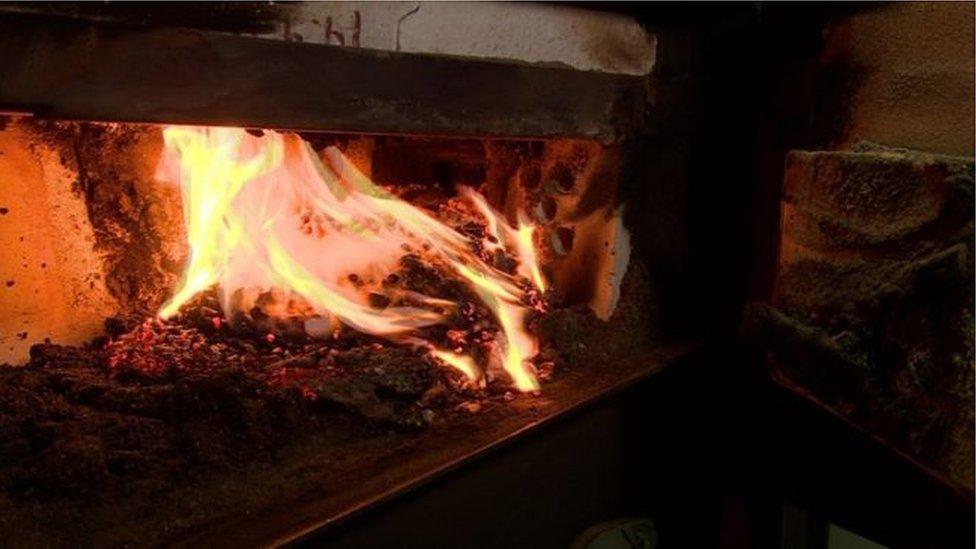
The RHI scheme was established to encourage uptake of eco-friendly heat systems over the use of fossil fuels
He told the inquiry he only learned in December 2016 that Department of Enterprise civil servants were communicating with industry officials about introducing cost controls in summer 2015.
He received emails containing the contact - leaked anonymously to him at the time - but the inquiry has since learned that a DUP adviser leaked them to Mr McCormick and the media.
It was done with the knowledge of then DUP enterprise minister, Simon Hamilton, whose permanent secretary at the time was Mr McCormick.
On Tuesday, Mr Hamilton said it was not his "proudest moment", but that it had been done in a bid to shift the media pressure from the DUP onto officials.
'Disclosure was wrong'
At the time, several DUP advisers had been accused of working to keep the scheme open at the behest of ex-enterprise minister Jonathan Bell, who had made a series of allegations in a BBC interview.
Mr McCormick later passed the emails onto PriceWaterhouseCooper, which was carrying out an investigation into the RHI scheme for the civil service.
He told the inquiry he had not authorised his officials to liaise with people in the renewable energy industry about the incoming changes.
"I did not know at all - the degree of contact and disclosure was just wrong and is recognised as wrong," he said.
Inquiry chair Sir Patrick Coghlin put it to him: "We know from the code there is a basis upon which officials can get in contact with potential or real stakeholders. Are you saying this contact overstepped that line?"
"Yes," replied Mr McCormick.
He said the first time it was drawn to his attention was when he received the envelope containing copies of the emails.
He admitted officials in the department had made a number of mistakes in relation to its handling of the scheme, and that there were too many people who knew early on of red flags, but "didn't tell", including DUP advisers.
Mr McCormack also told the inquiry of the "anxiety" he felt after he learned he had been secretly recorded talking to Mr Bell about the RHI scheme.
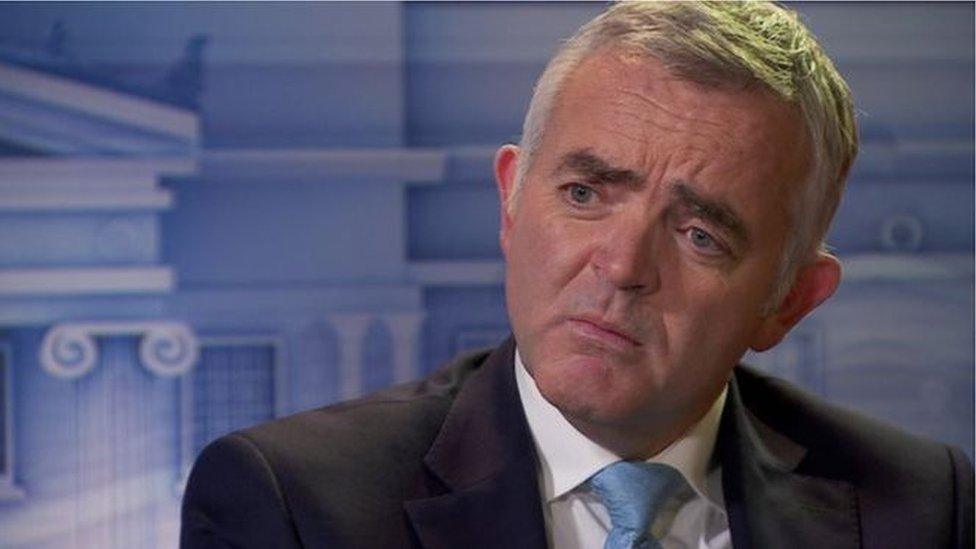
After the secretly recorded meeting, Jonathan Bell went public with claims he had been forced to keep the RHI scheme open
He was secretly taped in conversation by the former DUP minister in late 2016.
The men met as Mr Bell had requested access to departmental documents.
He had lost his job as enterprise minister in May that year.
A week after the meeting at which Mr McCormick was recorded, Mr Bell went public with claims he had been forced to keep the scheme open by DUP advisers.
Anxiety and fear
The long-standing civil servant said he was "shocked" when he received an email from Mr Bell, who told him he was going to put the tapes in the public domain.
He said he had not been concentrating on what he had said, and worried he might have said something "outrageous or derogatory in an unguarded moment", given the political tensions at the time.
During the discussion, Mr McCormick expressed surprise at a suggestion that the senior DUP adviser Timothy Johnston had been the instigator of the delay in adding cost controls to the scheme the previous year, although he later said Mr Johnston had been involved.
On Friday, he told the inquiry he never had any knowledge of a personal role in the RHI in summer 2015 by Mr Johnston.
He told the inquiry his level of anxiety and fear went up several notches when he learned of the tape.
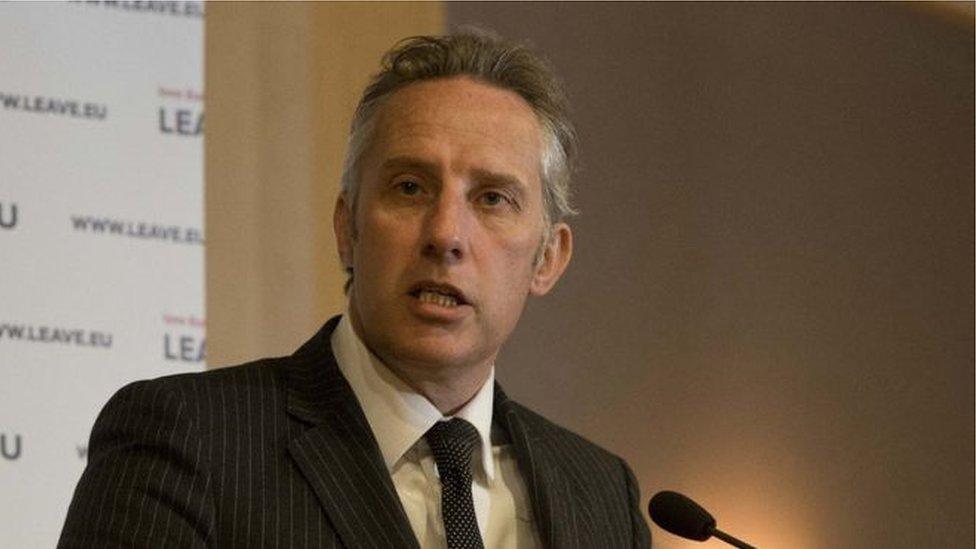
Ian Paisley said it appeared Jonathan Bell wanted a "shoulder to cry on" over the RHI scandal
Mr McCormick said he had been told that "visibility and prominence" were not to be sought by civil servants, and he felt news of secret recordings would put him in the spotlight in "the most embarrassing way".
Mr Bell has told the inquiry he made the recordings because he wanted to have a "valid record of what my concerns were".
He said he regarded Mr McCormick as a "person of integrity", but that as in late 2016, he was no longer enterprise minister he wanted to have his own account of events, as he could not access information as easily from the enterprise department by that stage.
'Shoulder to cry on'
Meanwhile, DUP MP Ian Paisley has described Mr Bell as "Walter Mitty in the flesh" over his version of events around the RHI scandal.
A written statement by Mr Paisley to the public inquiry has been published.
In March, the MP for North Antrim was accused of being involved in an "intimidating" lobbying phone call on behalf of an RHI applicant.
He told the Commons the inquiry chair Sir Patrick Coghlin had been "putting words in the mouth" of a witness.
His written statement said Mr Bell came to his home in December 2016, before appearing on BBC's Nolan Show where he gave an explosive interview claiming DUP advisers had stopped him from closing the flawed scheme.
Mr Paisley said Mr Bell did not tell him he was going to go on the Nolan Show.
He also said it appeared the former minister wanted a "shoulder to cry on" over the scandal.
"Frankly, I listened out of interest and, at times, amusement as he outpoured his incredible view of his place in government," he added.
"I was aware I had just met Walter Mitty in the flesh and I believe Jonathan Bell believed he had just met someone who would support his assertions. Only one of us was correct."
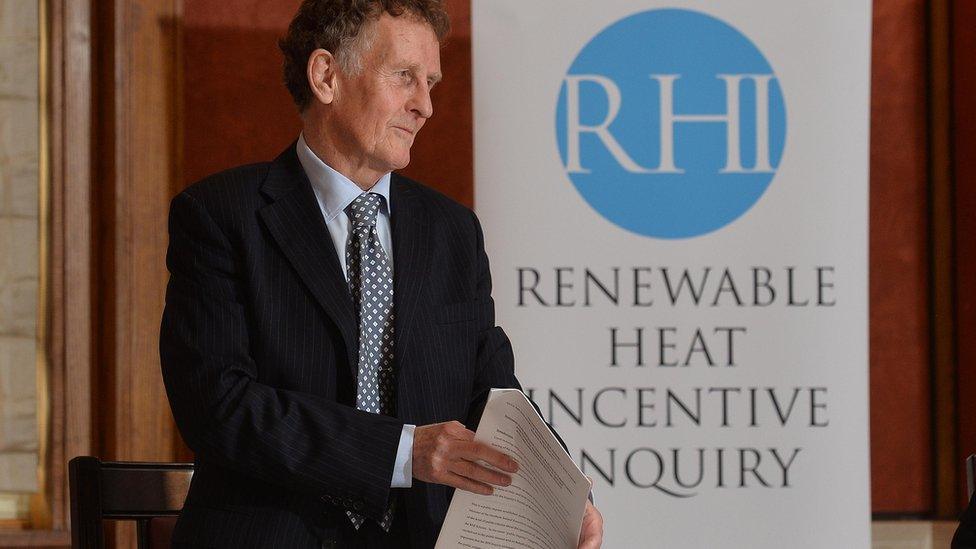
The RHI public inquiry is being chaired by Sir Patrick Coghlin and has heard 111 days of oral evidence
On Friday, the inquiry chair Sir Patrick Coghlin set out the timescale for what happens next at the inquiry.
Sir Patrick said in light of evidence, it was necessary to adjust the timescales.
He said more time will be allowed to allow witnesses to submit written statements.
The additional hearings will be held on 12, 13, and 14 December as necessary, he added.
'Objective and accurate'
The inquiry was due to return for a couple of days in December to hear closing statements from some of the core participants - that will be extended to a third day.
Sir Patrick said the inquiry had prided itself on being "dynamic and flexible" and described the extension as a "modest adjustment".
Last month, Sir Patrick had warned the media not to "sensationalise" some of the evidence that had been heard.
However. on Friday, he said he accepted the media coverage had been "clear, objective and accurate".
He was grateful for that and need not have issued a "degree of caution", he added.
- Published24 October 2018
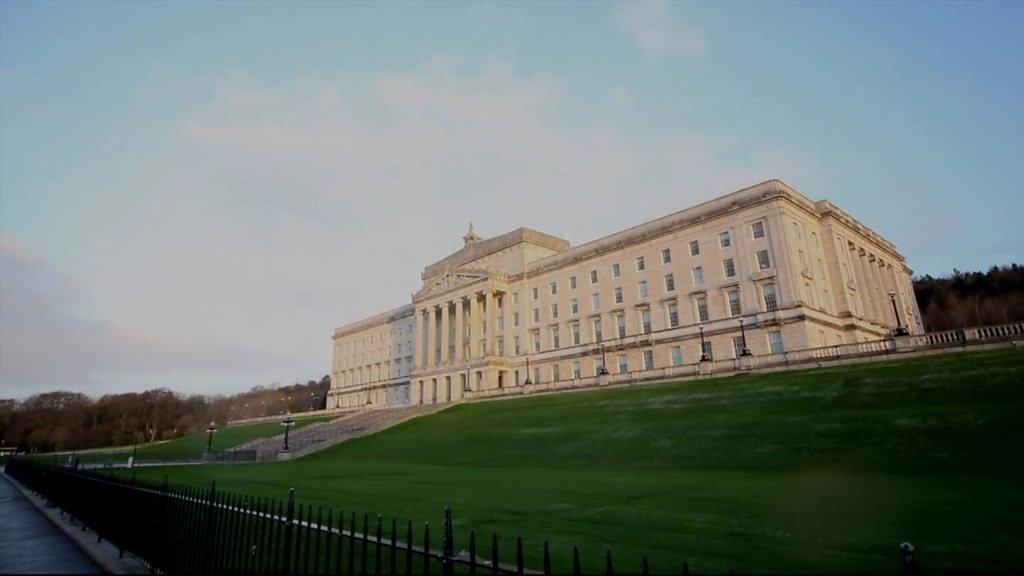
- Published23 October 2018
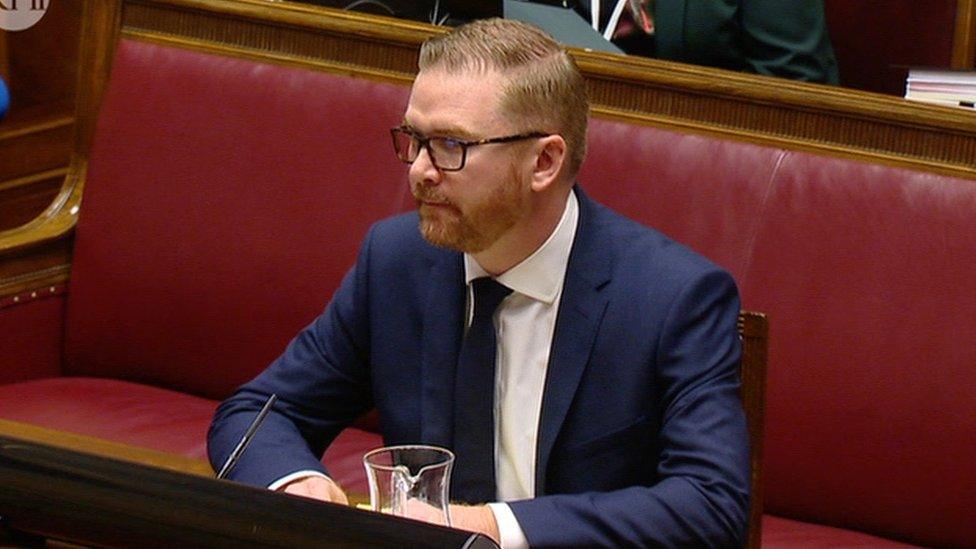
- Published10 October 2018
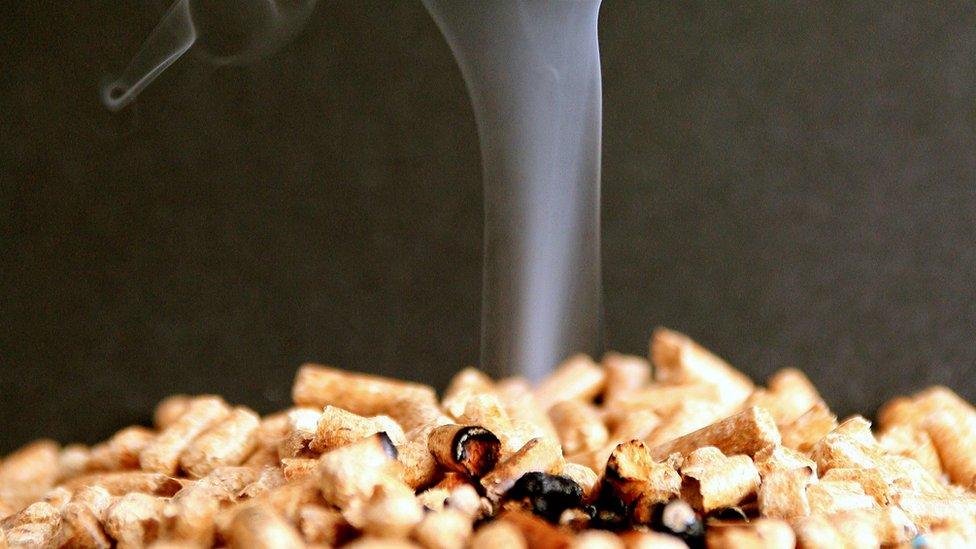
- Published5 October 2018
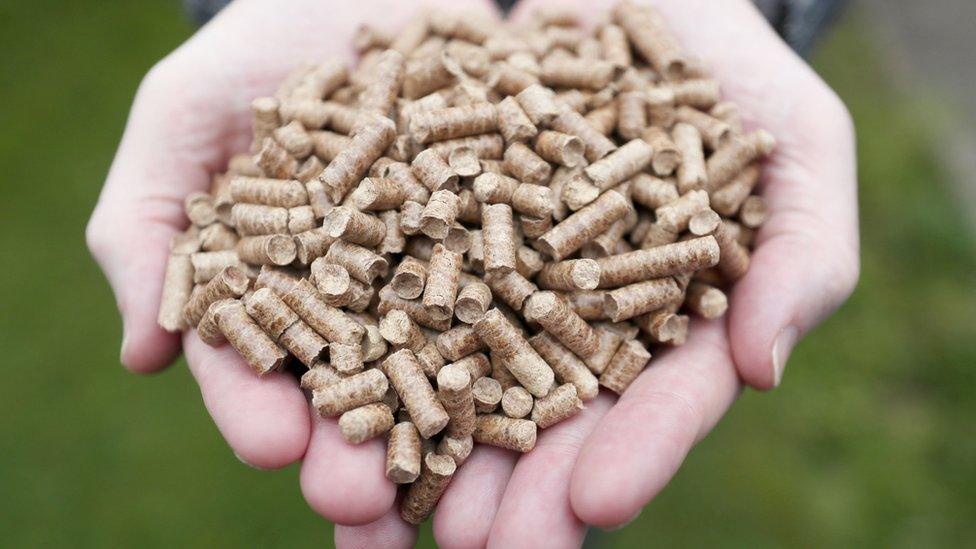
- Published5 September 2018
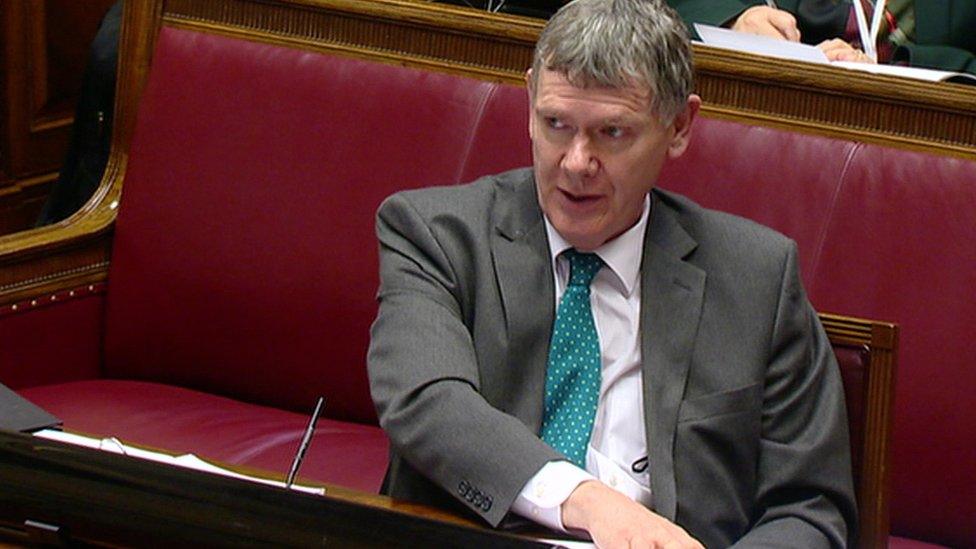
- Published4 September 2018
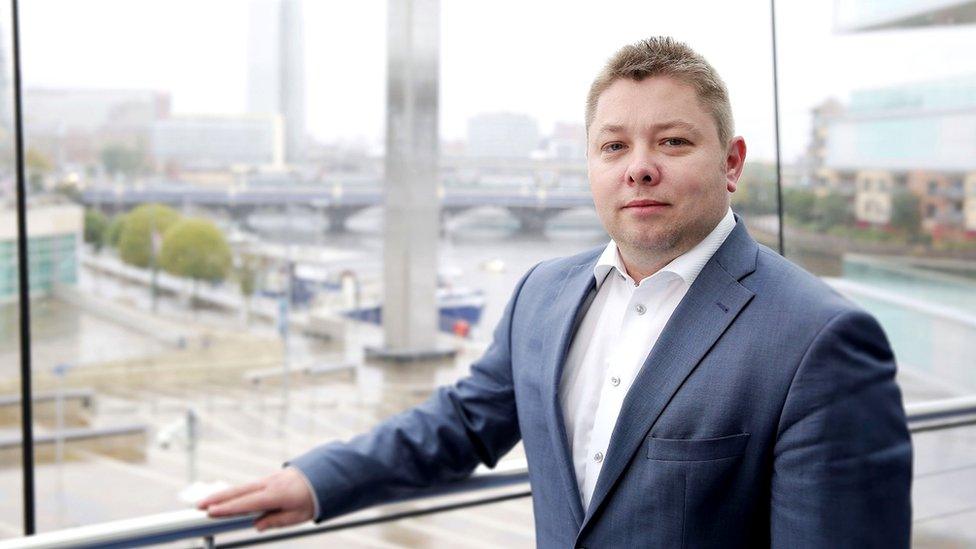
- Published23 October 2019

- Published7 November 2017
